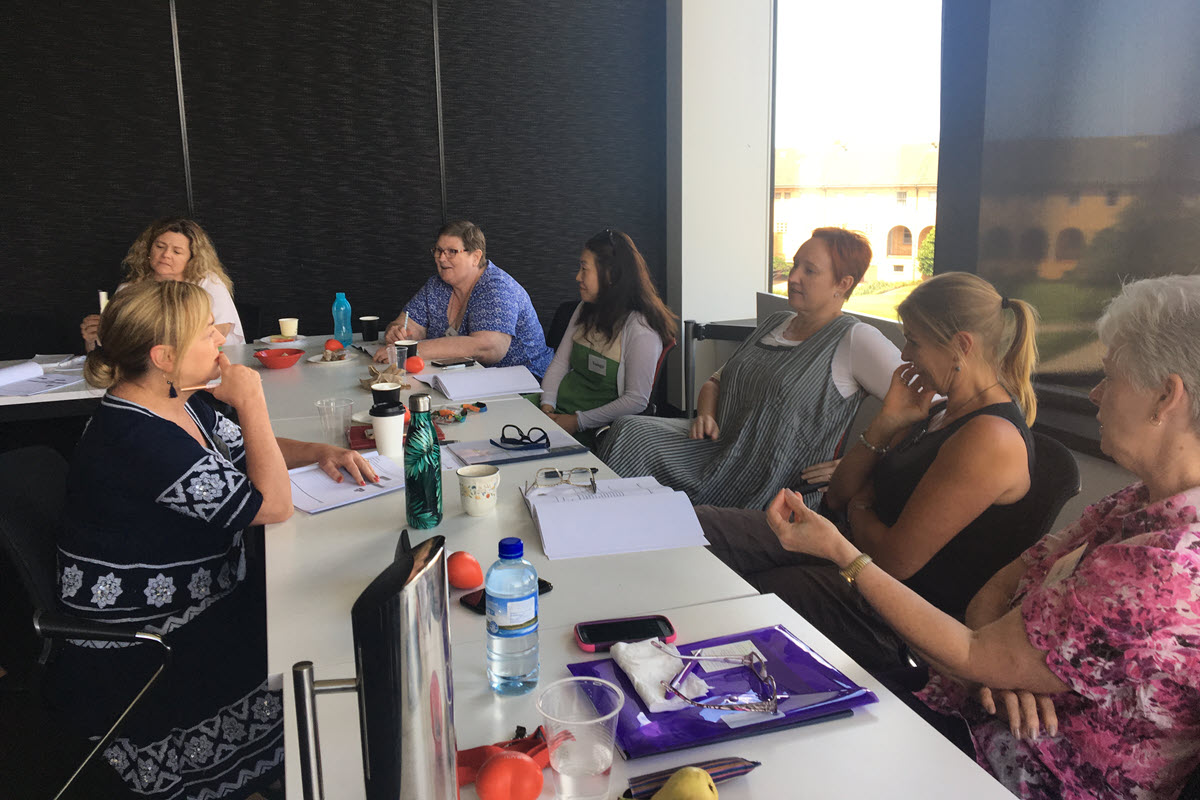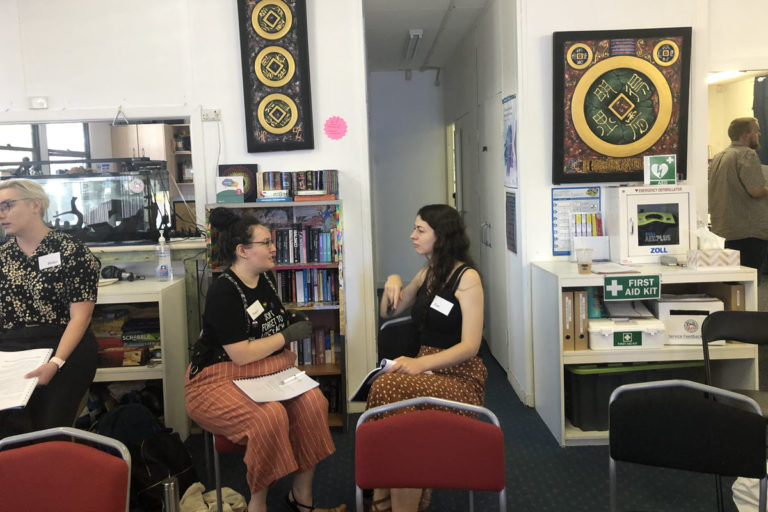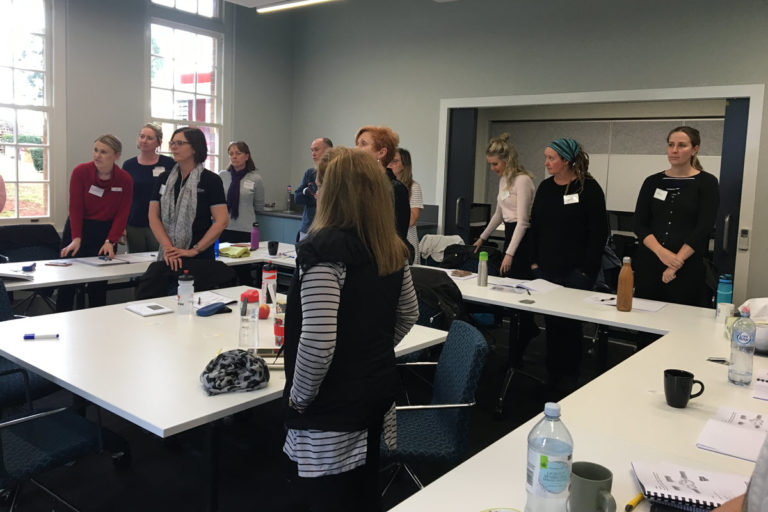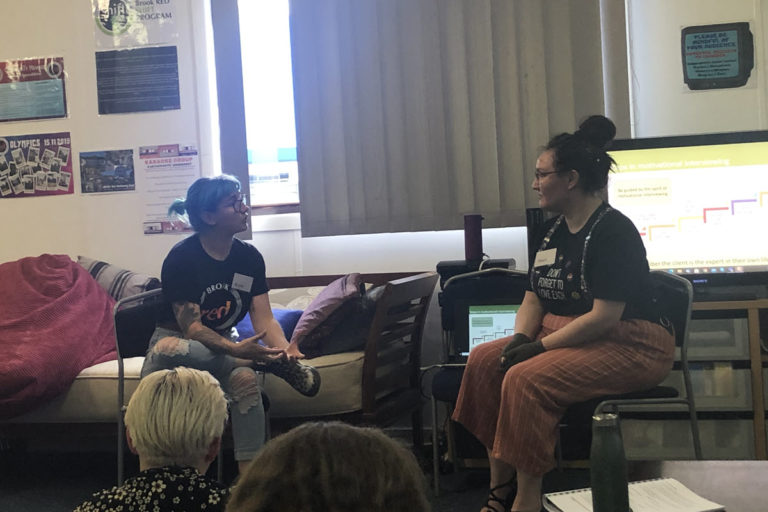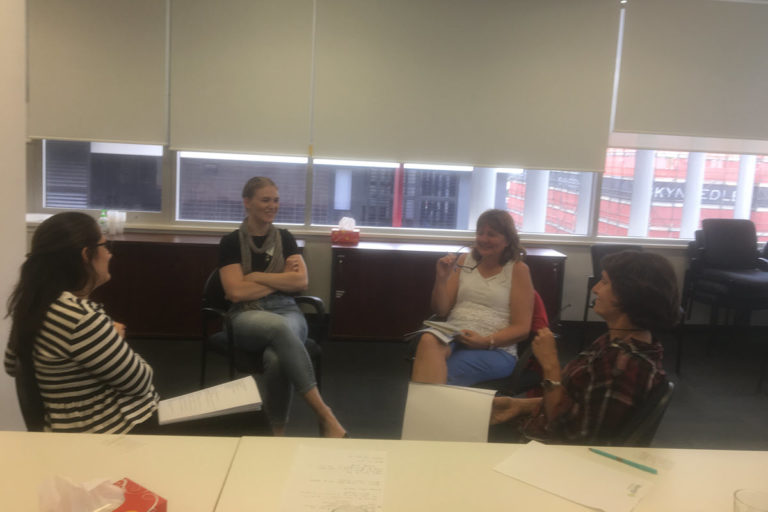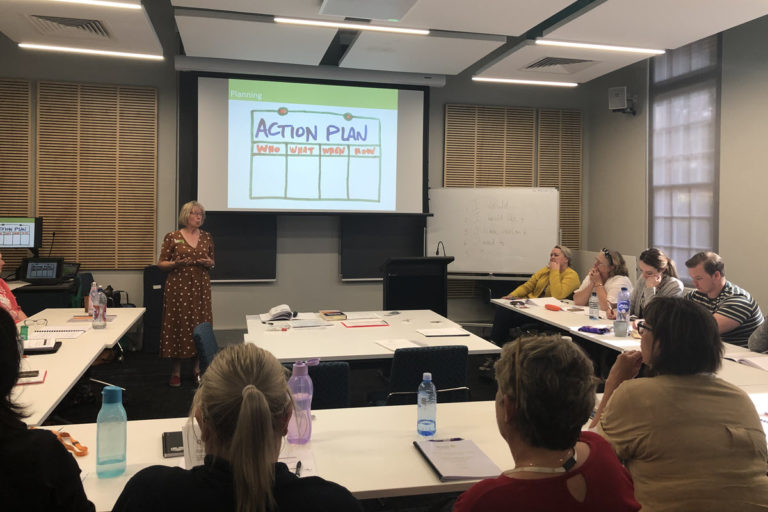Using OARS in Motivational Interviewing
The four core motivational interviewing skills or OARS are Open questioning, Affirming, Reflecting and Summarising (Miller, W. R., & Rollnick, S. 2013). Most clinicians and helpers have these essential micro counselling skills in their tool box as they are also used in a wide variety of counselling and helping situations. Because these four skills are essential in motivational interviewing (Zolezzi,2021), we review each one individually below.
Open Questions in Motivational Interviewing
Using open questions gives the client the opportunity to tell their story and provide important information. This skill demonstrates interest in the person’s life and their struggle with behaviour change and assists in building acceptance and trust.
Open questions in motivational interviewing gather broad descriptive information. They:
- facilitate dialogue
- require more than a simple yes or no response
- often start with words like “how” or “what” or “tell me about” or “describe” and
- usually go from general to specific.
Remember that closed questions have a place for gathering discrete pieces of information such as employment or marital status. Be cautious not to get into a question and answer session. Asking question after question can seem a little like a police interrogation. The rule of thumb is no more than 3 questions in a row with the client doing most of the talking – about 70% to the clinician’s or helper’s 30%.
Affirming or Using Affirmation in Motivational Interviewing
Affirmations can be used liberally in motivational interviewing, but they should be congruent and not effusive or over the top. The clinician or helper must feel and believe what they say – if you are not genuine, the person will feel this and trust may be lost. Affirming is different from praising, which is often more about the clinician’s or helper’s reaction and can come across as superior and patronising. Affirming the client acknowledges and supports the client’s struggles and hard work. Notice opportunities to use affirmations in your work. Affirmations are best when they focus on the client rather than on your response.
Reflective Listening as a core Motivational Interviewing Skill
Reflective listening is the primary skill used to demonstrate empathy, interest and understanding. In relation to influencing behaviour change, reflective listening helps to clarify, to manage conflict, to explore reasons for change and to provide affirmation. Reflective listening begins with an interest in what the client has to say and a desire to truly understand how that person sees things. Reflective listening needs to be developed as it is easy for beginners to get trapped in what becomes an interrogation, asking question after question with little or no reflection.
Summarising in Motivational Interviewing
Summarising reinforces what has been said, and shows you have been listening carefully. Summaries are usually brief, 3-4 sentences and decisions need to be made about what to include. Use summaries throughout the session as well as at the conclusion of a session. It is a good way to check that both the clinician or helper and the client are on the same page. The client hears a rundown of their concerns and has the opportunity to correct any errors in understanding. A summary can also be used to help shift direction in the session and move the conversation forward.
These four skills are essential to the practice of Motivational Interviewing. Using your OARS frequently greatly enhances success.
Contact us to find out more about Motivational Interviewing and how we can assist your organisation to support and empower your staff.
References
Miller, W. R., & Rollnick, S. (2013). Motivational Interviewing: Helping people change (3rd ed.). New York: Guilford Press.
Zolezzi, M., Paravattil, B., & El-Gaili, T. (2021). Using motivational interviewing techniques to inform decision-making for COVID-19 vaccination. International Journal of Clinical Pharmacy, 43(6), 1728-1734.

